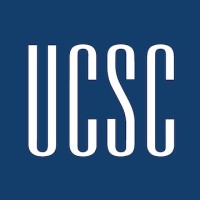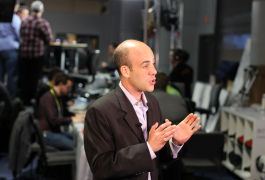Doctor of Philosophy in Politics
UC Santa Cruz
Santa Cruz, CA
The Faculty
The work of the UCSC Politics Department’s faculty has led the field toward interdisciplinary and engaged research, and represents the diverse cutting edge of U.S. and international political research. A group of affiliated graduate faculty extends the program’s intellectual breadth and the range of the course offerings.
The department enjoys several areas of special strength, including American political development, the social foundations of democratic politics and democratization; political economy; politics of the developing world; the politics of language; sub-national politics; post-colonial theory and nationalist discourse; early modern political thought; and informal and translocal political organization.
The Curriculum
The Politics Department is impressed by the fact that many of the best studies of politics today disregard the conventional boundaries of the political science’s disciplinary subfields. Therefore, the core graduate curriculum and qualifying examination process are structured around four interrelated themes central to political inquiry. Each of these areas of emphasis focuses, in a different way, on the relations among material life, institutional authority, collective mobilization, and political vision at all levels of politics.
Political and Social Thought. Brings together the history of political thought; contemporary social and critical theory; and the contributions of legal and institutional analysis of various kinds. This area of inquiry emphasizes the critical study of political practices that are experienced or understood as in some way limiting, oppressive, or wrong. The work of political and social theory as we see it is to transform our understanding of these practices; to see their contingent conditions; and to articulate the possibilities of governing ourselves differently.
Political and Social Forces. Concerns the interaction of social forces and political forces, drawing upon the work of scholars focused on social mobilizations and histories. Accordingly, this area of inquiry focuses on the articulation and organization of political interest and identities. This area studies the mutual interaction of these interests and identities with structure (states, discourses, public policy, and the law) uniting substantive and theoretical concerns across regional, national, and global politics.
States and Political Institutions. Emphasizes the international study of political institutions as instruments of collective decision-making and action. This area of inquiry focuses on the state and on transnational, subnational, and regional political institutions. In this area, we emphasize historical patterns of institutional development in relation to domestic political conflict and the changing contours of international political economy and patterns of conflict and cooperation among states.
Political Economy. Focuses on the relationship between states, markets, and societies. This area of inquiry explores the various understandings of political economy that have emerged within a number of different theoretical perspectives, including Marxism, realism, and liberalism. At subnational, national, and supranational levels, this area seeks to understand political economy outcomes as the result of the mutual interactions between political institutions, societal interests, and ideas and norms.
The politics graduate curriculum works critically upon and within conventional social science research and also ranges beyond its methods, drawing upon cultural studies, historical sociology, and history as they inform the study of politics. Students in the politics graduate program also work with faculty in other distinguished departments at UCSC, including literature, history of consciousness, history, Latin American and Latino studies, environmental studies, sociology, philosophy, international economics, and feminist studies.
Scholars and students in the program emphasize the articulation of important questions prior to the development of methods for grappling with them, while recognizing the importance of appropriate methodological tools for doing meaningful political research.
To support the growth of students as scholars, the department also offers a series of professional development sessions to introduce and help develop the skills of successful academic work. All graduate students are also expected to attend department events with notable visitors brought to campus for public lectures, presentation, and/or graduate colloquia.









